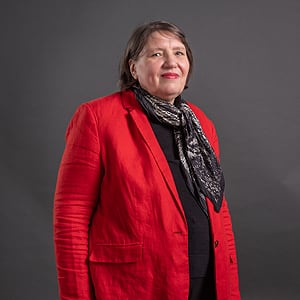About the lecture
The majority of fluid flows are inherently complex due to factors such as turbulence, the appearance of flow features – for example, shock waves and wakes – and the presence of geometrically complex boundaries.
Professor Szmelter’s lecture will review aspects of handling these complex geometries by means of different mesh generation approaches and discretisation techniques – such as finite volume, elements and differences – supplemented by mesh adaption. A brief review of aspects of mesh adaption, related to error indicators and mesh manipulation techniques, will be provided and illustrated with numerical examples.
Accurate simulation of turbulent flows still poses challenges especially for complex flows. Techniques taking turbulence modelling can vary from the efficient sei-empirical methods such as boundary layer viscous-inviscid interactions, via the Raynolds Average Navier Stokes turbulence modelling, to more advanced approaches like Large Eddy Simulations and novel turbulence treatment, using the Implicit Large Eddy Simulations.
The efficacy of such simulations will be illustrated in the context of advanced simulations of atmospheric and engineering applications for large problems for which the use of supercomputers is essential.
About the lecturer
Professor Joanna Szmelter joined the University from Cranfield University, in October 2006, where she was a Senior Lecturer in the Ballistics and CFD Centre. Prior to this she was Principal Engineer and Head of the Aerodynamic Technology Group at BAe Airbus Ltd. Here, she responsible for the development and implementation of all aspects of numerical methods for the aerodynamic design of civil transport aircraft.
She gained her PhD and worked as a Research Associate at Swansea University. During the past fifteen years she has published extensively on atmospheric flow simulations. Her track record of contributions to the UK’s competitiveness also includes modelling methodologies that resulted in engineering design codes, used by leading UK industries and defence.
In the mid-1990s she contributed to the introduction of unstructured meshes to BAe Airbus Ltd. Her innovative methods for wing design optimisation and viscous coupling techniques for complex geometries, operating on unstructured and structured Multiblock meshes, have been applied in the design of the recent Airbus aircrafts. She has also made pioneering contributions to mesh adaption and proposed some of the first flow solvers using the finite element discretisation.
For further information on this lecture, please contact the Events team.

